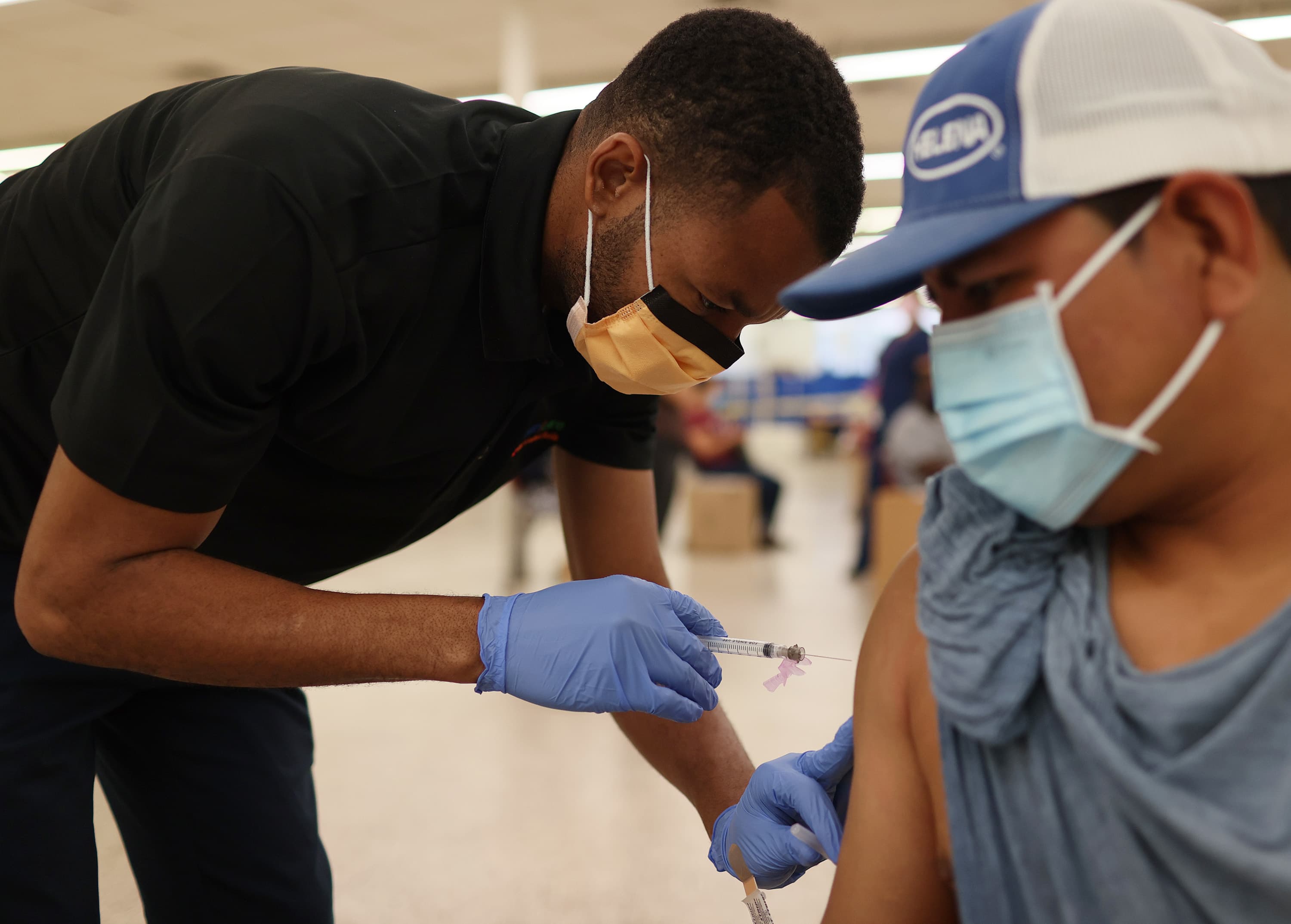Vaccines are effective against Covid-19, particularly the extremely contagious delta version, but the issue, according to a professor of preventive medicine at Vanderbilt University School of Medicine, is getting enough people immunized. “Putting it in the fridge won’t help, and it won’t protect you from disease. On CNBC’s “Squawk Box Asia,” William Schaffner said, “You have to get the vaccine into arms.” “on the following Monday According to data compiled by the online scientific publication Our World In Data, around 22.6 percent of the world’s population has received at least one dose of the Covid-19 vaccine, but the majority of those who have received it are in high-income, wealthy countries in North America and Western Europe. In low-income nations, less than 1% of the population has gotten at least one dose. Booster doses from Covid It’s unknown whether those who have been vaccinated against Covid-19 will need booster doses in the future. A committee of scientists from the Centers for Disease Control and Prevention has stated that there isn’t enough evidence to recommend booster shots to the general public at this time, but that more vulnerable groups, such as the elderly or transplant recipients, may require an extra dose. On May 20, 2021 in Immokalee, Florida, Odilest Guerrier, Medical Assistant, gives a Moderna COVID-19 vaccine to Pasqual Cruz at a clinic set up by Healthcare Network. Getty Images/Joe Raedle Booster shots may be required, according to Schaffner, depending on two factors. “The longevity of protection of our present vaccines is still to be determined, but so far so good,” he said. “The other is whether new variations evolve that can circumvent the protection of our current vaccines,” he added. “All we have to do now is get more people to accept (Covid vaccinations).” Since the epidemic began last year, the coronavirus has mutated numerous times. Delta, a virulent strain that was first discovered in India and has now spread to over 90 nations, is one variety that specialists believe poses a big threat to eliminating Covid-19. Delta is rapidly becoming the most common form of the disease worldwide, and the World Health Organization has designated it as a “variant of concern.” Vaccine apprehension Vaccine apprehension is rampant in many nations, owing in part to misconceptions regarding the doses. Even in the United Regions, where more than half of the population has received at least one dose of vaccine, inoculation efforts in some states have met a snag as the delta strain spreads rapidly. It could become a problem in some parts of the United States, particularly in rural areas, where vaccination rates are low, leaving more people vulnerable to the delta strain. The more the virus spreads, the greater the possibility of new varieties evading our vaccine’s protection. Not just in the United States, but everywhere on the planet. Schaffner, William Vanderbilt University School of Medicine is a medical school in Nashville, Tennessee. While the United States is in a “somewhat better position” to deal with the new version, Schaffner believes it is far from ideal. He explained that vaccination levels in some locations vary from mid-20 percent to mid-30 percent, although the optimal range for preventing the spread of the delta variant is approximately 70 percent to 80 percent. According to Schaffner, many patients who are hospitalized due to Covid-19 are either unvaccinated or only partially vaccinated. “The more people who become infected as a result of the virus’s spread, the more opportunity the virus has to grow. It mutates as it multiplies. It also has the ability to develop new varieties as it mutates “he stated “The more the virus spreads, the greater the possibility of new varieties evading our vaccine’s protection. Not just in the United States, but elsewhere in the world, “Schaffner continued. Continue reading
Vaccines work against Covid — but not enough people are getting the shots, U.S. doctor says
2021-06-28T06:56:41-04:00June 28th, 2021|





